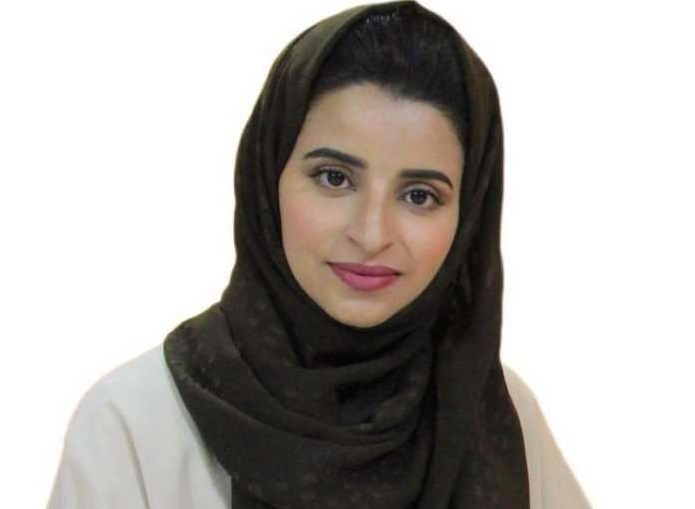Nada Al Qahtani is a student from King Khalid University.
Abu Dhabi: Nada Saeed Al-Qahtani, an outstanding student from the College of Computer Science at King Khalid University has done something incredible. She made a robot named ‘Eve’, that can support and teach the curriculum for children with Down Syndrome. This prototype suits students in the age group 3 and 15 years.
Idea of the project:
Nada Al Qahtani explained that the idea of the project occurred to her when she had observed the diversity of the level of these students. Their difference in ability compared to ours made her think of teaching methods that would consider, their individual difference in ability. As a result of this, the importance of learning with the help of a robot provides special benefits for children who have difficulties in learning in general children and with Down syndrome in particular. The methods include visual presentation, self-learning, graphics, simulating sounds and immediate responses. It also considers the ability to manage their own learning and socialize with students in a manner similar to the interaction of teachers with their students.

How the robot works?
The robot relies on an intelligent system using Artificial Intelligence (AI) techniques for the ability to recognize students as well as the ability to distinguish sounds. This enables the robot to respond accurately and give correct reactions. The robot system consists of five basic units which are teaching calculations, numbers, reading, listening and solving puzzles. These units will be operated well after a machine learning process understands the different skill levels of the students. A smartphone app connected to the Android system has been created to add the child’s information by the parents to facilitate the identification of the child by the robot. This can also help the parents to follow the child’s level of progress by sending the results of the tasks that have been completed.
“The project aims to use a robot to help children with Down syndrome build and develop emotional intelligence skills, their cognitive skills and behavior skills through interactive activities and solve puzzles. This robot also provides a unique opportunity for children with Down syndrome to participate in learning, playing and communicating and making friends”, Nada said. Nada revealed that she designed the robot that consists of the structure of the robot and its engines, an interactive screen, a sound and image discrimination module. This, added with an application to track the performance of each student, confirms that all student interactions are raised to a special platform automatically.
Development:
Nada developed the robot structure entirely on a 3D printer. The various electronic modules were purchased from companies that provide latest technology. She expressed her thanks to the project supervisor, the Artificial Intelligence Center, the college, and the university administration for its role in building their cognitive and skill capabilities.
The Director of the Artificial Intelligence Center at the university and the student’s supervisor, Dr. Salem bin Fayez Al-Olayani, appreciated Nada and explained that artificial intelligence aims to solve many problems in the present day. The Vice President for Graduate Studies and Scientific Research, Professor Saad bin Abdul Rahman Al-Omari, congratulated the student for this distinguished robot to teach children with Down Syndrome. He said ideas like this would speed up the Kingdom’s journey towards 2030 Vision. The President of the University appreciated Nada and thanked Professor Dr. Falih bin Raja Allah Al-Salami, the supervisor of her project, indicating that the student presented a distinguished model in scientific research and innovation.




![The Top & Most Popular Seafood Bucket Restaurants in Dubai for you [Never Miss]](https://uae24x7.com/wp-content/uploads/2020/09/8-seafood-in-a-bucket-scaled-e1600739237403.jpg)
![Procedures for Renewing the Driving License in Abu Dhabi [3 Simple Steps]](https://uae24x7.com/wp-content/uploads/2020/07/Capture-9-e1595666454466.jpg)





